Determination leads deaf nurse to role in the ICU
Pushing the limits of what’s possible, Casey King sets an example for other deaf people interested in medical careers.
Joni Behrends seems to want to say something. Breathing through a ventilator, she can’t.
So, Casey King, RN, hands her a pen and holds a pad of paper as Behrends writes a series of letters on it: W....I.....T....S....O.
King signs to her interpreter, who turns to the patient: “Let’s try a marker.”
This time Behrends writes something resembling cursive. Still, neither King nor her interpreter can figure it out.
King signs to her interpreter, “Do you want some paper just to draw on?”
Behrends nods.
Earlier, Behrends mouthed responses to questions about her name, what year it is, where she is, all of which was huge progress as she recovers from brain surgery on the surgical intensive care unit (SICU) of The Ohio State University Comprehensive Cancer Center – Arthur G. James Cancer Hospital and Richard J. Solove Research Institute (OSUCCC – James).
“I’m seeing her come to life again,” King says through her interpreter.
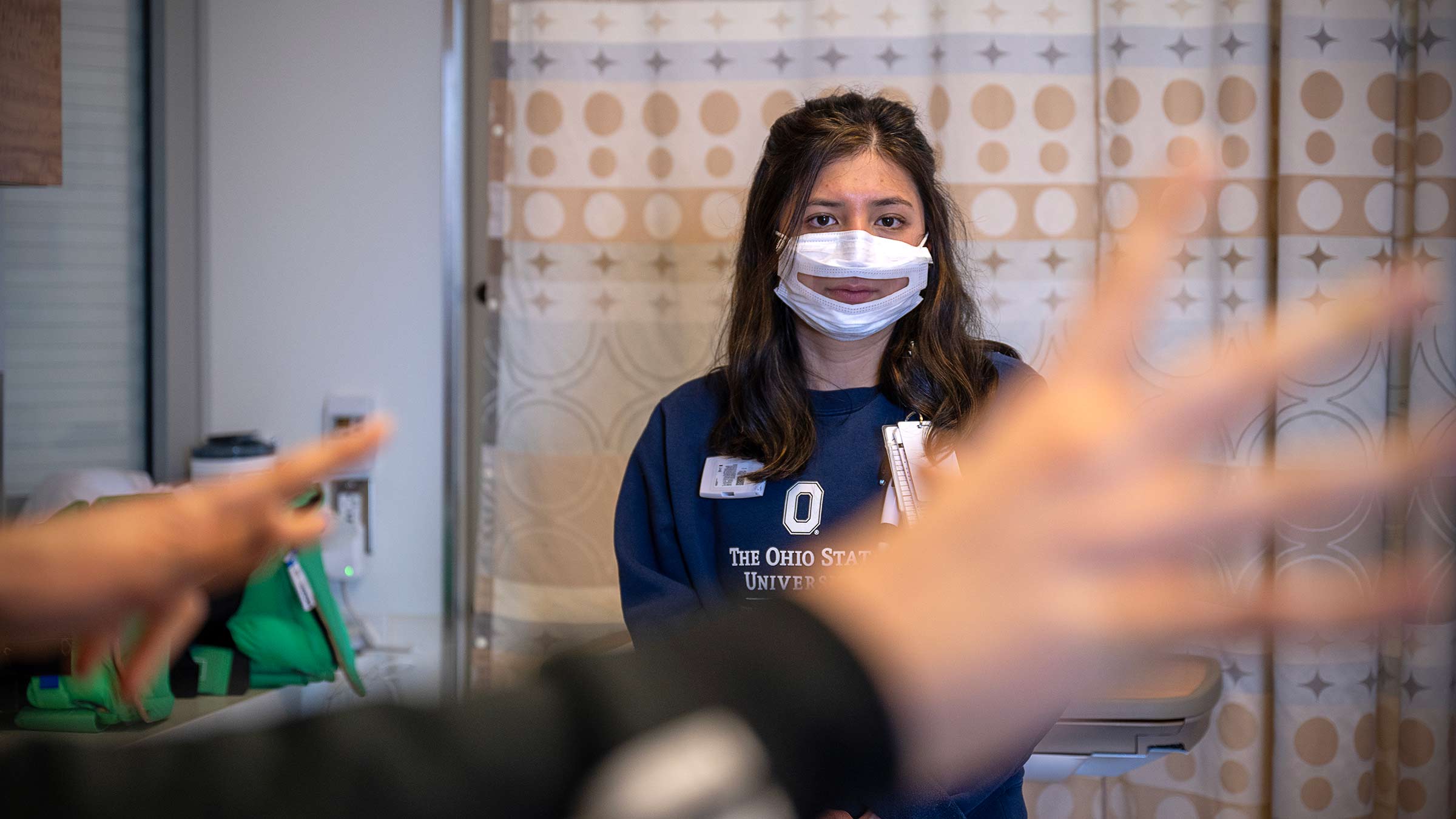
As a nurse who’s deaf, King is particularly tuned in to what her patients’ faces and their hands might be trying to express when they can’t speak. They’ve had an accident, a stroke or another illness affecting their brain.
In her first year as a nurse, the only deaf nurse on staff, King has been highly successful in a role that requires almost constant communication with staff, patients and family members.
Throughout her 12-hour shifts, an interpreter accompanies King into the patient rooms, signs to her and speaks for her, acting as the go-between for King with her patients and co-workers.
“I’ll go in and introduce myself and let the patient know I’m deaf and that this is my interpreter. Some people can be surprised and perplexed. The more they spend time with me the more they understand and develop trust in me,” says King.
Although she’s been deaf all her life, King reads lips well. She, her interpreter and sometimes her co-workers wear face masks that have clear plastic around the mouth so King can still read their lips. Her digital stethoscope connects via Bluetooth to her cochlear implant, which lets her hear her patient’s heartbeat.
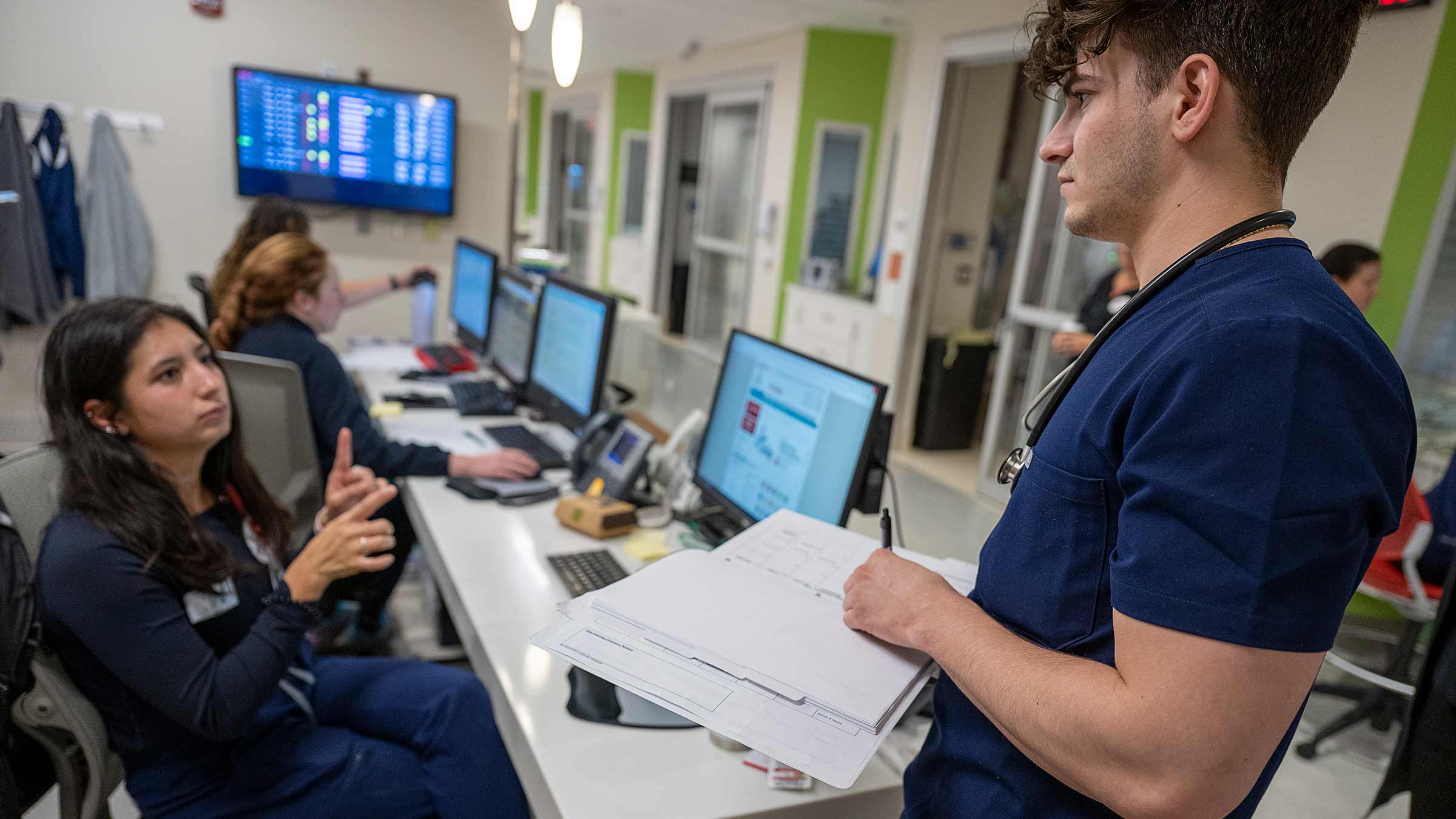
Wearing her cochlear implant, King can hear voices and sounds well, but medical terms can sometimes be hard to decipher. That’s why she works with an interpreter and has done so for much of her life. She didn’t get a cochlear implant until she was 13.
As a young child, King had repetitive ear infections. Her parents noticed she didn’t respond to dogs barking or any loud sounds. When she was 18 months old, she was diagnosed as being profoundly deaf, the first person in her immediate and extended family to be born deaf.
Without the cochlear implant in her left ear, she can only hear the sound of a bulldozer, motorcycle or anything that’s 100 decibels or higher. In her right ear, she hears slightly better — 90 decibels or louder. A hairdryer or a blender.
“We’re always going to face bumps in life, right?” King says about the hurdles of being deaf. “It’s really all about figuring out how to get around those issues.”
Which she certainly has done.
Finding her career niche in nursing
When she was in college and considering careers, King shadowed a deaf doctor. She was intrigued with the profession, but she wanted to spend all her time taking care of people. Nursing seemed a better fit.
One of her role models growing up was a family friend who was a lawyer and also deaf. If he could be successful in a job that required a lot of communication, why couldn’t she, she figured.
Being admitted to the nursing program at Capital University in Bexley, where she grew up, King knew she’d have to work hard — harder than many of her classmates — to finish the degree and go on in the field.
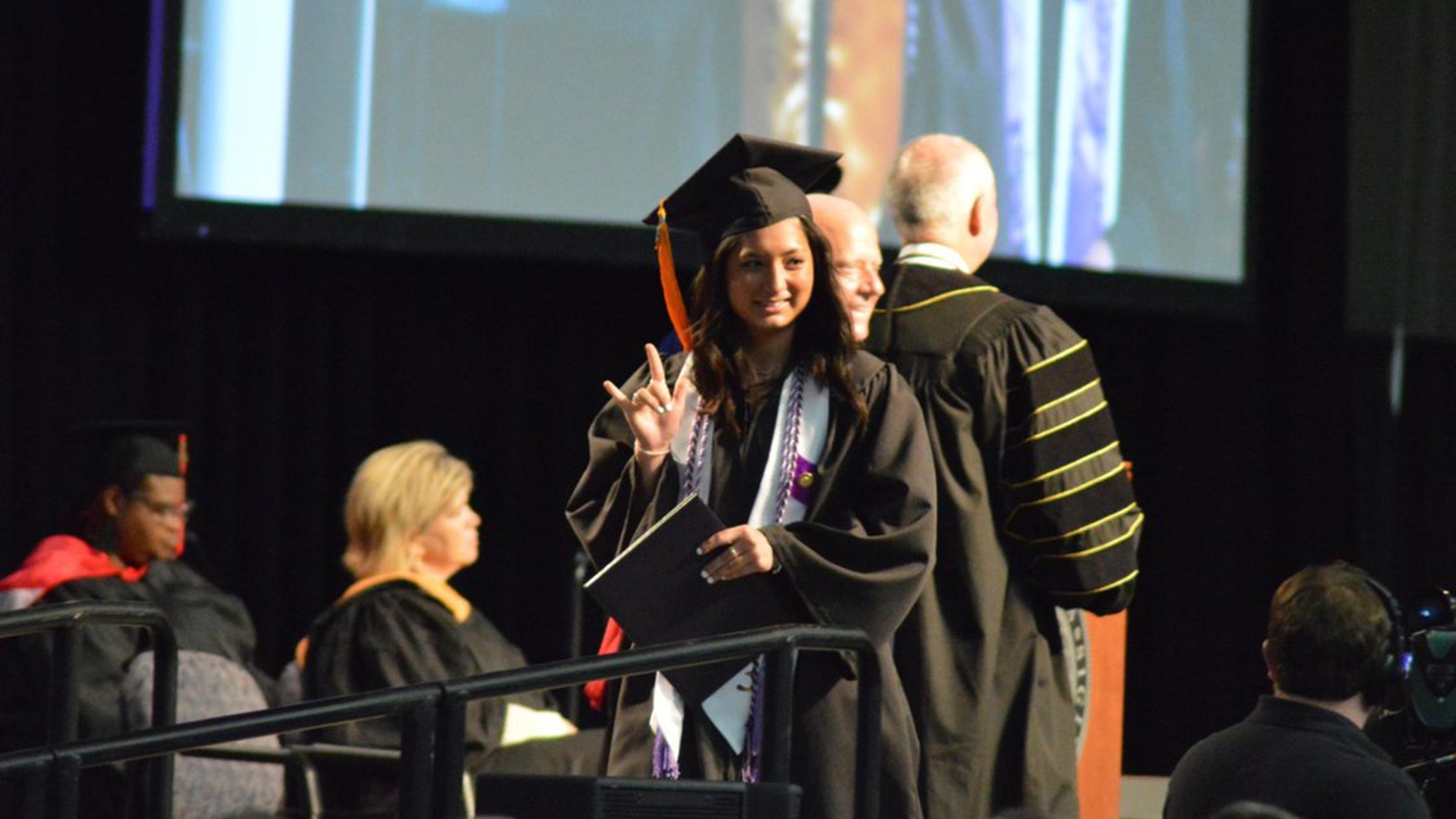
Helping blaze a trail for deaf nurses
In June 2023, she became the first deaf nursing student to graduate from Capital University. And before graduating, she had a job offer at the OSUCCC – James.
King quickly adapted to the new job.
“From day one we wanted to go beyond just making sure an interpreter is provided and consistently available for Casey,” says Brett Hagenbuch, MHA, RN, a nurse manager on King’s unit.
“We have wanted to ensure that the interpreters work well with Casey and that she has an opportunity to provide input on who she works with. They are her voice.”
Thorough and detail-oriented, King always asks a lot of questions to make sure she’s giving patients the best care possible, Hagenbuch says.
“Casey’s ability to ask thoughtful questions and pick up on small changes in a patient’s condition and respond appropriately, are far beyond a typical nurse in their first year of practice,” he says.
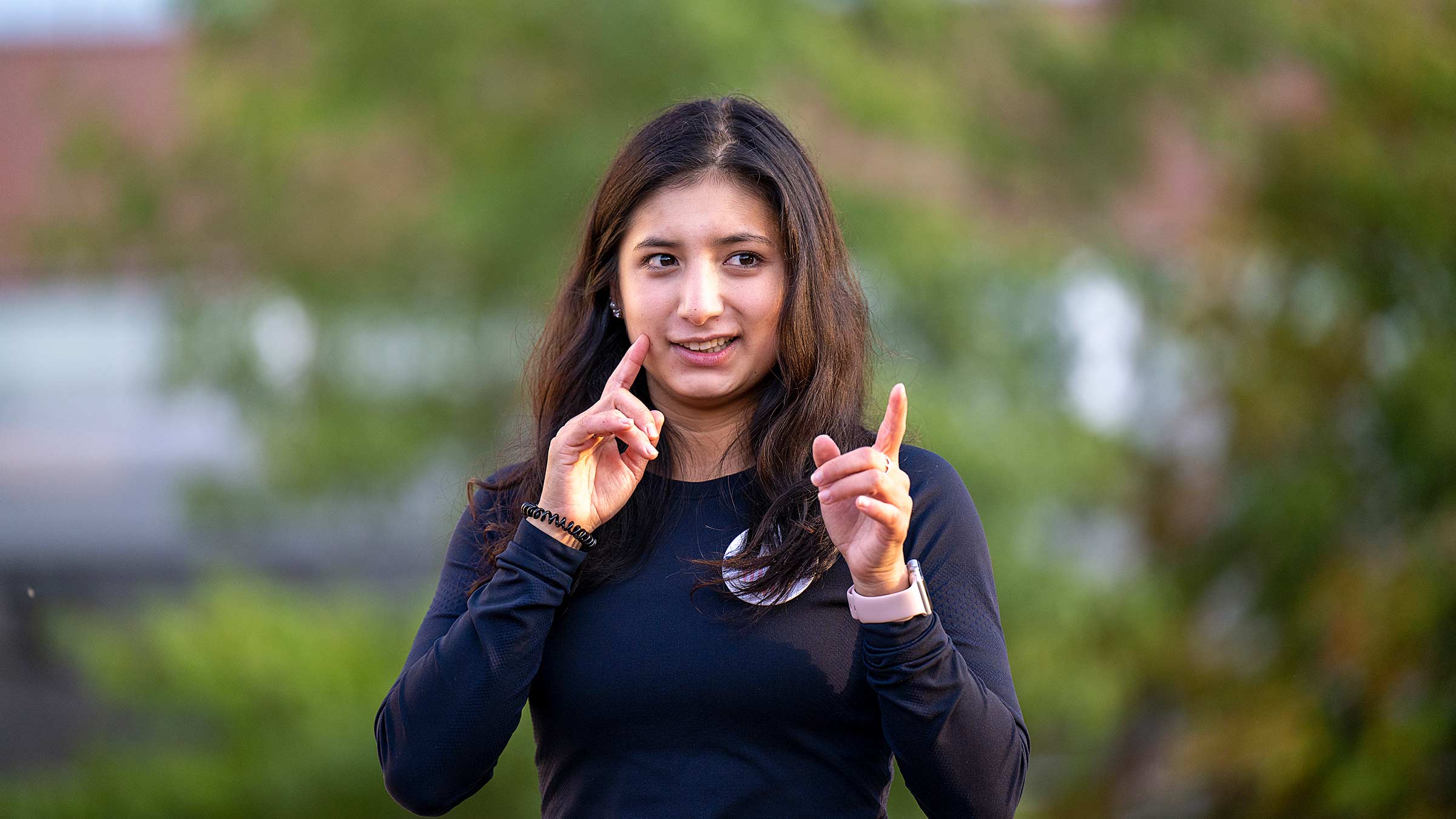
She shows a lot of empathy for her patients and their family members, easily establishes rapport with them and communicates well.
“In the ICU, nurses are often communicating with several teams or providers at the same time to give updates or request orders. Casey is able to maneuver these complex situations seamlessly,” he says.
Up for the challenge
Each month, King alternates between day shift and night shift. Though she’s a morning person, whatever her schedule is, she’s always eager to start work, get busy and stay busy. In that way, the ICU is a good fit for her. She loves caring for people and working as a team to help patients recover.
“Communicating with staff or patients can be challenging sometimes,” King says. “But if people meet me halfway, communication gets much easier.”
She appreciates when people at least try to understand what she’s saying and give her a chance to read their lips, their facial expressions and gestures.
“The more you work with deaf people like me, the easier it gets to understand us,” she says.
Mikayla Smalley, BSN, RN, found that to be true when she trained King on the SICU.
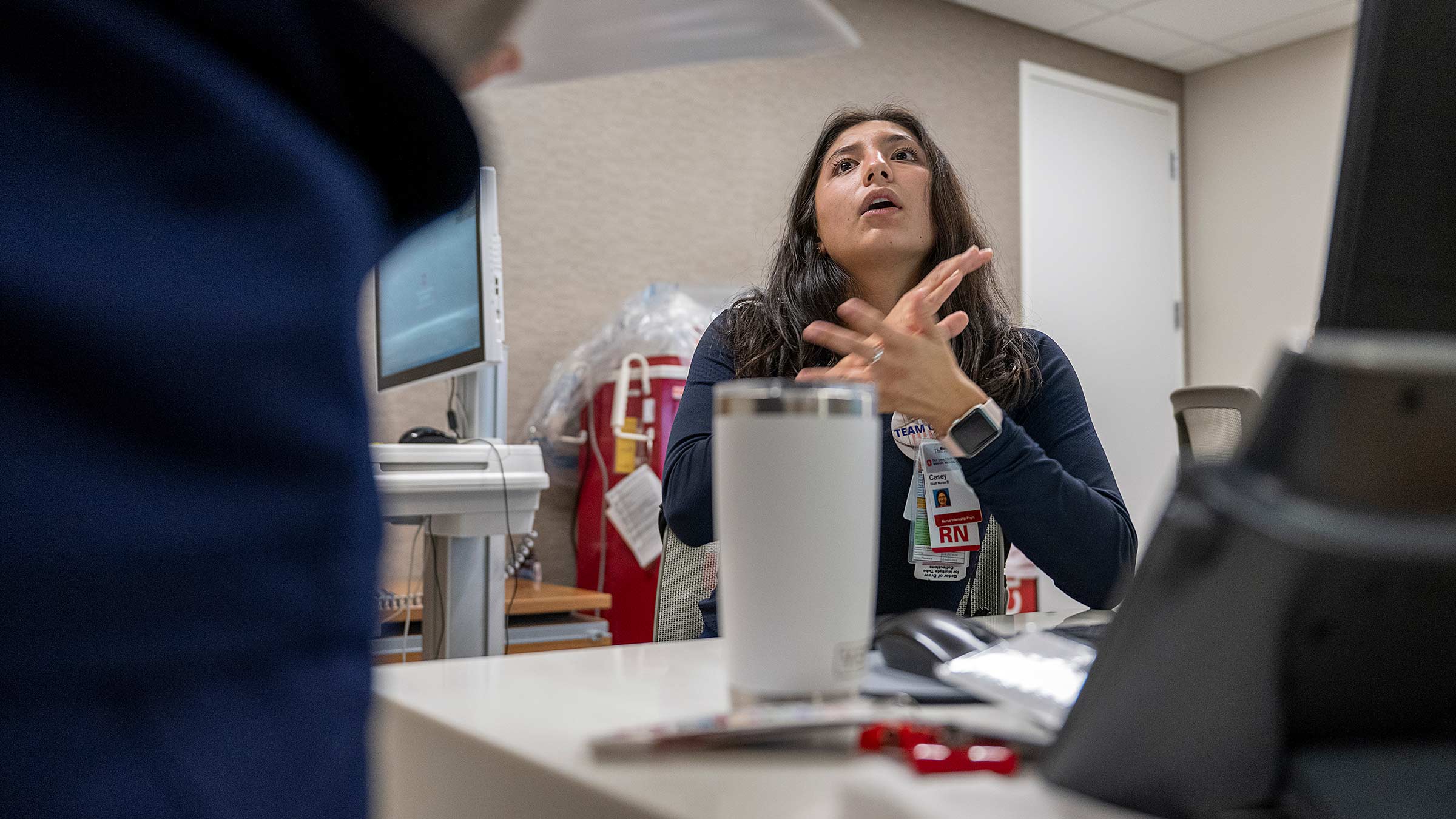
“After just a few weeks of working with her, I felt like I could easily communicate with her even without her interpreters,” she says.
Smalley describes King as a hard worker eager to provide the best care for her patients.
“As a new nurse, she’s always wanting to learn more and ask questions.”
Sometimes there are challenges to work out, like when King’s stethoscope at times doesn’t connect to her Bluetooth correctly, so she’s unable to hear someone’s heartbeat.
“It’s a bit of a pain,” she says. “I just ask my co-worker if she can listen with her stethoscope.”
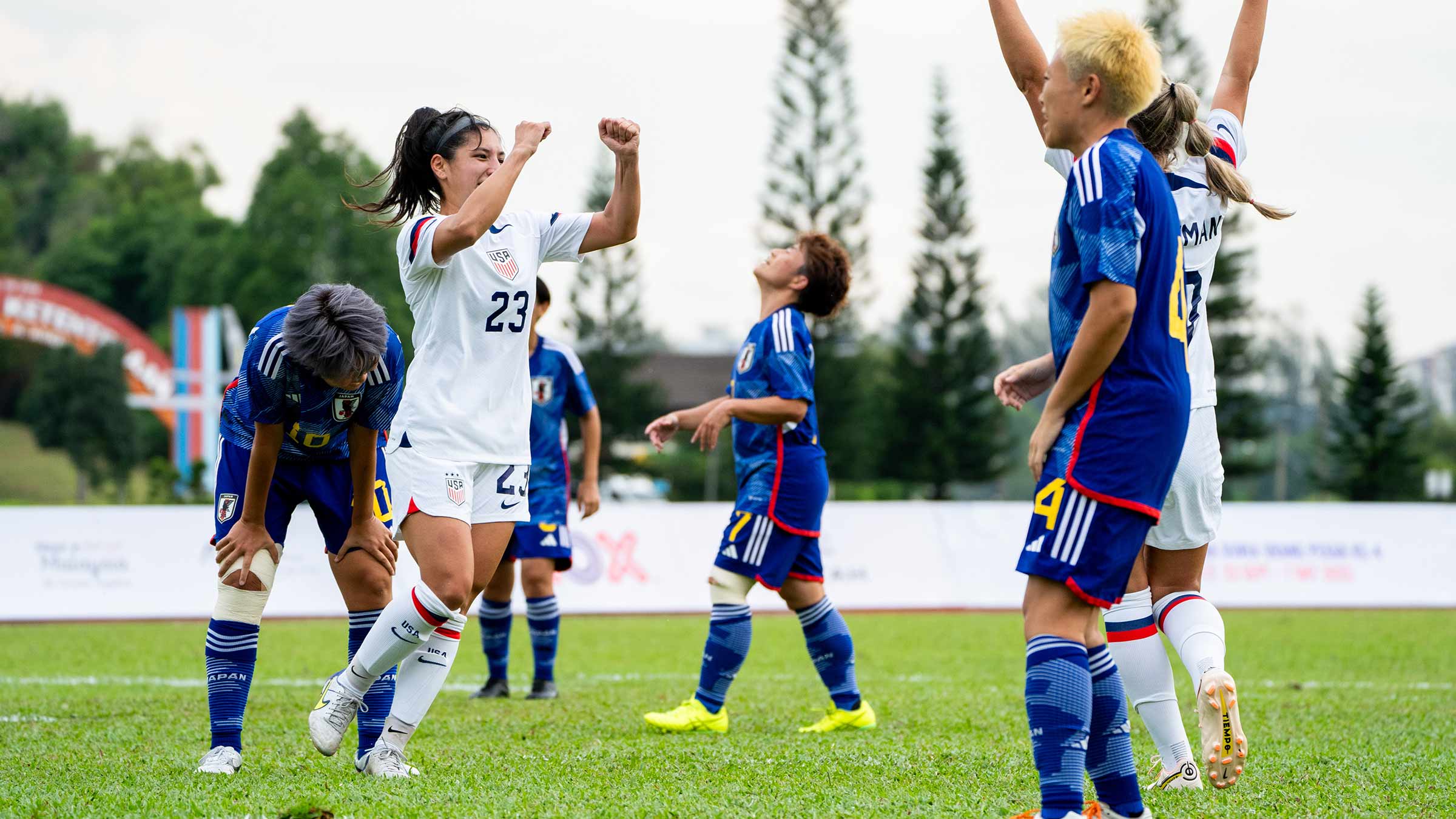
Photo credit: Joy Marshall
From the nursing floor to the soccer field
King’s affinity for working as a team is one of her strengths not only on the floors of a hospital but also on soccer fields around the world.
Since she was 14, she’s played on the U.S. Deaf Soccer Women’s National Team, which led her to Italy to compete in 2016 and to Malaysia in 2023.
“Joining together to represent the United States is so magical,” King says. “We aim for the same thing, to be the best version of ourselves on and off field despite the hearing loss we have.”
During games, deaf and hard of hearing soccer players aren’t allowed to wear their hearing aids or assistive devices. Instead, they rely on their eyes, their hands to communicate with each other and on the interpreters around the field. A flag tells players when time is up or when players substitute in.
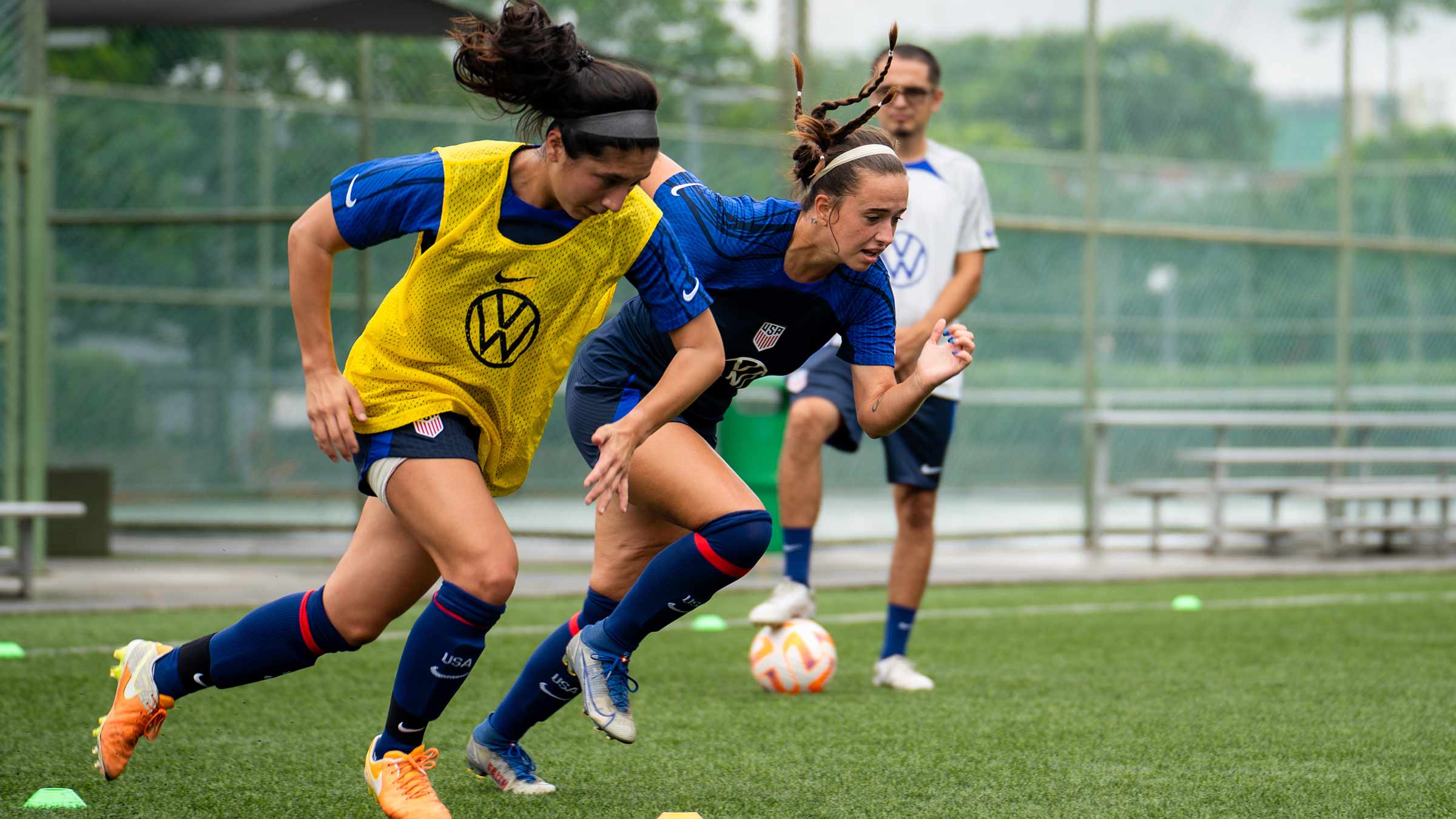
Photo credit: Joy Marshall
Soccer, King says, will probably always be a sport she’s involved in, in some way, while she’s working as a nurse.
“The feel of the ball at my feet gives me such peace,” she says.
Eventually, King plans to return to school to become a nurse practitioner and work at a family practice that serves primarily deaf people.
She’s hoping more deaf people join her in the medical field. She wants them to know that being deaf, even profoundly deaf, doesn’t have to limit their career choices. It hasn’t limited hers.

When you give to The Ohio State University Wexner Medical Center, you’re helping improve lives
We’re committed to making advancements in research, education and patient care that will have an impact throughout Ohio and the world.
Ways to Give



